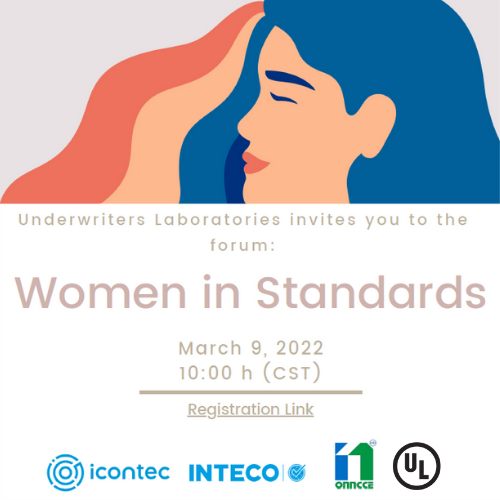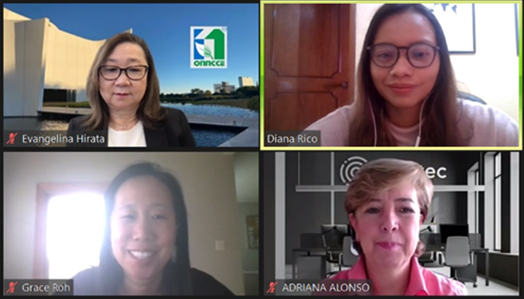-
News
March 17, 2022
Women in International Standards Leadership Convene for International Women’s Day Forum

Standardization from a gender perspective
Evangelina Hirata Nagasako, general director of Organismo Nacional de Normalización y Certificación de la Construcción y Edificación (ONNCCE), a Mexican organization dedicated to the development of standards in the construction and building industry, spoke at the forum. Nagasako discussed the participation of women in Mexico’s male-dominated workforce. She also promoted standardization efforts such as Mexican Standard NMX R 025 SCFI 2015 on Labor Equality and Non-Discrimination, which helps prevent discrimination in recruitment and training, and promotes salary equality between men and women.

Marbeth Delgado, manager of standardization projects at the Technical Standards Institute of Costa Rica (INTECO), also discussed the rates of unemployment and labor participation for women in Costa Rica, and shared examples of progress in the country due to standards initiatives for gender equality management systems and female entrepreneurship. She noted that female participation in the workforce rose to 46% in 2022, up from 27% in 2012.
Speakers from UL Standards and Engagement included Grace Roh, international standards specialist, who discussed her participation in the U.S. technical advisory group (TAG) to the International Organization for Standardization (ISO) Project Committee (PC) 337, Guidelines for the Promotion and Implementation of Gender Equality. Roh explained how the PC is developing technical guidance on how to promote and implement gender equality in all types of organizations, public or private, regardless of size, location, and field of activity. Sonya Bird, director of international standards, also provided a prerecorded video message on UL Standards and Engagement’s commitment to helping achieve the UN Sustainable Development Goals (SDGs) for 2030 and explained how specific goals can help to achieve gender equality and women’s empowerment.
Senior Standards Specialist Valara Davis moderated a closing panel with input from each of the speakers who discussed ways to encourage more women and girls and diversify participation in standardization.
Making an impact
“I think that making a personal change will impact a cultural change, so it is important to do an introspective analysis to eradicate the negative roots that have been instilled in us and value the small things we can do to impact society at different levels,” said Marbeth Delgado.
“I would recommend that from our industry we promote consistent projects and actions to venture into gender equality,” said Evangelina Hirata Nagasako. “In addition, within our culture, gender justice, and equity should be included so that it is something habitual in our uses and customs.”
Watch the event
Please note the presentations on promoting gender diversity and gender equality, starting at 03:30 and 24:15, are in English, while the remainder of the program is in Spanish.